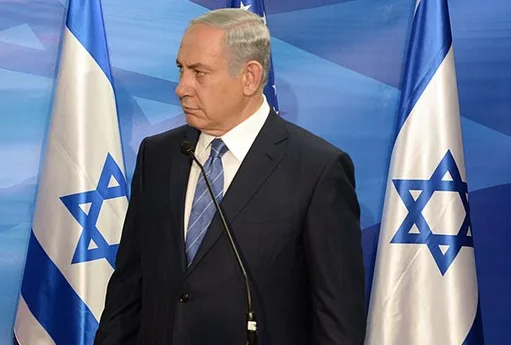Concerns grow that Netanyahu’s positive spin on the hostage deal is tied to his U.S. Visit and survival tactics
As Israeli Prime Minister Benjamin Netanyahu prepares for crucial meetings with U.S. leaders this week, skepticism surrounds his optimistic claims about an impending deal with Hamas. Netanyahu, who is scheduled to meet President Joe Biden, Vice President Kamala Harris, and former President Donald Trump, has projected a hopeful outlook on securing a resolution to the ongoing hostage crisis. However, families of the Israeli hostages, along with some political analysts, worry that this optimism may be more about bolstering his position during his U.S. visit rather than reflecting substantive progress.
Sources close to Netanyahu suggest that his upcoming speech to Congress will be carefully crafted to highlight the strong, historic support Israel has received from the U.S., especially from Biden. The prime minister’s address is expected to be conciliatory, emphasizing the longstanding partnership between the two nations and acknowledging Biden’s decades of support for Israel. This approach aims to reinforce a positive relationship with the current administration while navigating the complex political landscape of his visit.
Embed from Getty ImagesNetanyahu’s positive rhetoric regarding the hostage deal contrasts sharply with the apprehensions voiced by the families of the hostages. These families have been vocal in expressing their frustration over the slow progress and perceived lack of concrete results. They fear that Netanyahu’s statements are designed more to manage diplomatic relations and ensure political survival during his U.S. trip rather than addressing the immediate needs of those affected.
The timing of Netanyahu’s visit, including his meetings with Biden, Harris, and Trump, has been strategically planned. The prime minister is using the opportunity to strengthen his international support and secure favourable outcomes for Israel amid ongoing conflicts with Hamas and regional threats. However, this has also led to a perception that his positive stance on the hostage deal is part of a broader strategy to enhance his diplomatic leverage and political position.
Concerns about Netanyahu’s intentions have been compounded by the complex nature of the negotiations with Hamas. The deal, which is still being finalized, is seen by many as a critical component of Netanyahu’s efforts to showcase progress and success during his high-profile U.S. visit. The pressure to deliver results and manage public perceptions has intensified, raising doubts among the hostages’ families about the sincerity and effectiveness of the proposed solutions.
In his address to Congress, Netanyahu is expected to also touch on Israel’s broader strategic goals, including the need for a robust response to Hamas and confronting regional threats such as Iran. His speech will serve as a platform to assert Israel’s position and seek continued support from U.S. lawmakers and the American public.
Overall, while Netanyahu’s visit to Washington is seen as a significant opportunity to reinforce U.S.-Israel relations and address key issues, the scepticism surrounding his optimistic claims about the hostage deal highlights the complex interplay of diplomacy, politics, and public perception. The prime minister’s approach will be closely scrutinized for its effectiveness in achieving tangible outcomes for the hostages and strengthening Israel’s position on the global stage.
Analysis:
Political: Netanyahu’s strategic approach during his U.S. visit underscores the political calculations involved in international diplomacy. His efforts to present a positive outlook on the hostage deal may be aimed at securing political support and mitigating any backlash. This visit highlights the delicate balance between managing domestic expectations and leveraging international relationships for political survival.
Social: The scepticism from the hostages’ families reflects broader societal concerns about the effectiveness and sincerity of political leaders in addressing humanitarian crises. The tension between optimistic public statements and the reality of ongoing struggles illustrates the challenges of maintaining public trust and delivering on promises.
Racial: The focus on the hostage crisis and the geopolitical context of Netanyahu’s visit touches on broader racial and ethnic issues related to the Israeli-Palestinian conflict. The international response and the dynamics of negotiations involve considerations of ethnic and national identities, influencing how different communities perceive and react to the situation.
Gender: The dynamics of the hostage crisis and Netanyahu’s diplomatic efforts intersect with gender issues, particularly in terms of how women and families affected by the conflict are represented and supported. The focus on the families of hostages brings attention to the gendered aspects of the crisis and the need for inclusive and effective responses.
Economic: The economic implications of Netanyahu’s visit and the ongoing negotiations with Hamas include potential impacts on U.S. aid to Israel, trade relations, and the broader economic stability of the region. The outcomes of these diplomatic efforts could influence economic policies and financial support from international partners.
